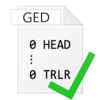You can help change the world
You can help change the world
Vote: (4 votes)
Program license: Free
Developer: Worldcommunitygrid
Version: 5.10.45
Works under: Windows
Vote:
Program license
(4 votes)
Free
Developer
Version
Worldcommunitygrid
5.10.45
Works under:
Windows
Pros
- User-friendly interface
- Non-invasive, runs only when computer is idle
- Supports a variety of humanitarian scientific research projects
- Backed by reputable organizations such as IBM and BOINC
- No impact on overall computer performance
Cons
- Requires continuous internet connection for data exchange
- Impact is not immediately tangible and requires long-term commitment
- Dependent on user participation for significance
Harness the power of your idle computer for global good with World Community Grid. This innovative application turns dormant processing time into a force for progress in worldwide humanitarian research.
Understanding World Community Grid
World Community Grid is an altruistic endeavor aimed at harnessing the collective processing power of numerous personal computers across the globe. This approach, known as distributed computing, effectively creates a virtual supercomputer capable of processing complex data for scientific research. When your computer is idle, World Community Grid utilizes this available processing capacity to analyze data for various humanitarian projects.
A Simple Yet Impactful Concept
The philosophy behind World Community Grid is that every individual has the potential to contribute to significant scientific advances. Such collective action, even when it consists of individual contributions that appear small by themselves, can lead to substantial global impacts when aggregated. By simply running this application on your computer during its idle time, you can help progress research in critical areas such as medical breakthroughs, environmental issues, and renewable energy.
Effortless Participation in Scientific Advances
Participation in World Community Grid is designed to be as non-intrusive as possible. It operates when your computer is not in use, so there is no disruption to your regular computing activities. When your system's screensaver activates, that’s when World Community Grid springs into action. The app processes a packet of research data, then connects to a central server to upload the results and download new data to be analyzed.
Collaboration with Leading Institutions
World Community Grid is backed by industry giant IBM, ensuring a solid foundation of trust and technological prowess. Furthermore, it collaborates with BOINC (Berkeley Open Infrastructure for Network Computing), an open-source platform for volunteer computing and grid technology. Through this collaboration, World Community Grid contributes valuable computational resources to a variety of projects ranging from cancer and HIV/AIDS research to studies on climate change and sustainable energy solutions.
Performance and User Experience
One of the most frequently lauded features of World Community Grid is its light footprint on a computer's performance. Since the application is programmed to be active only during periods when the computer is not being used, it does not slow down regular operations. Users can contribute to significant research without sacrificing their productivity or system performance.
In terms of user experience, the application is straightforward to install and requires minimal configuration. The interface is user-friendly, allowing individuals to track their contributions and understand the impact they're helping to make.
In Conclusion
World Community Grid transforms spare computing cycles into a valuable resource for socially beneficial research without complicating the user’s experience. It exemplifies how technology can be leveraged for philanthropy; participating is as simple as installing the application and letting it run in the background. As part of the global community, your contribution, bundled with those of millions of others, can indeed make a remarkable difference.
Pros
- User-friendly interface
- Non-invasive, runs only when computer is idle
- Supports a variety of humanitarian scientific research projects
- Backed by reputable organizations such as IBM and BOINC
- No impact on overall computer performance
Cons
- Requires continuous internet connection for data exchange
- Impact is not immediately tangible and requires long-term commitment
- Dependent on user participation for significance



